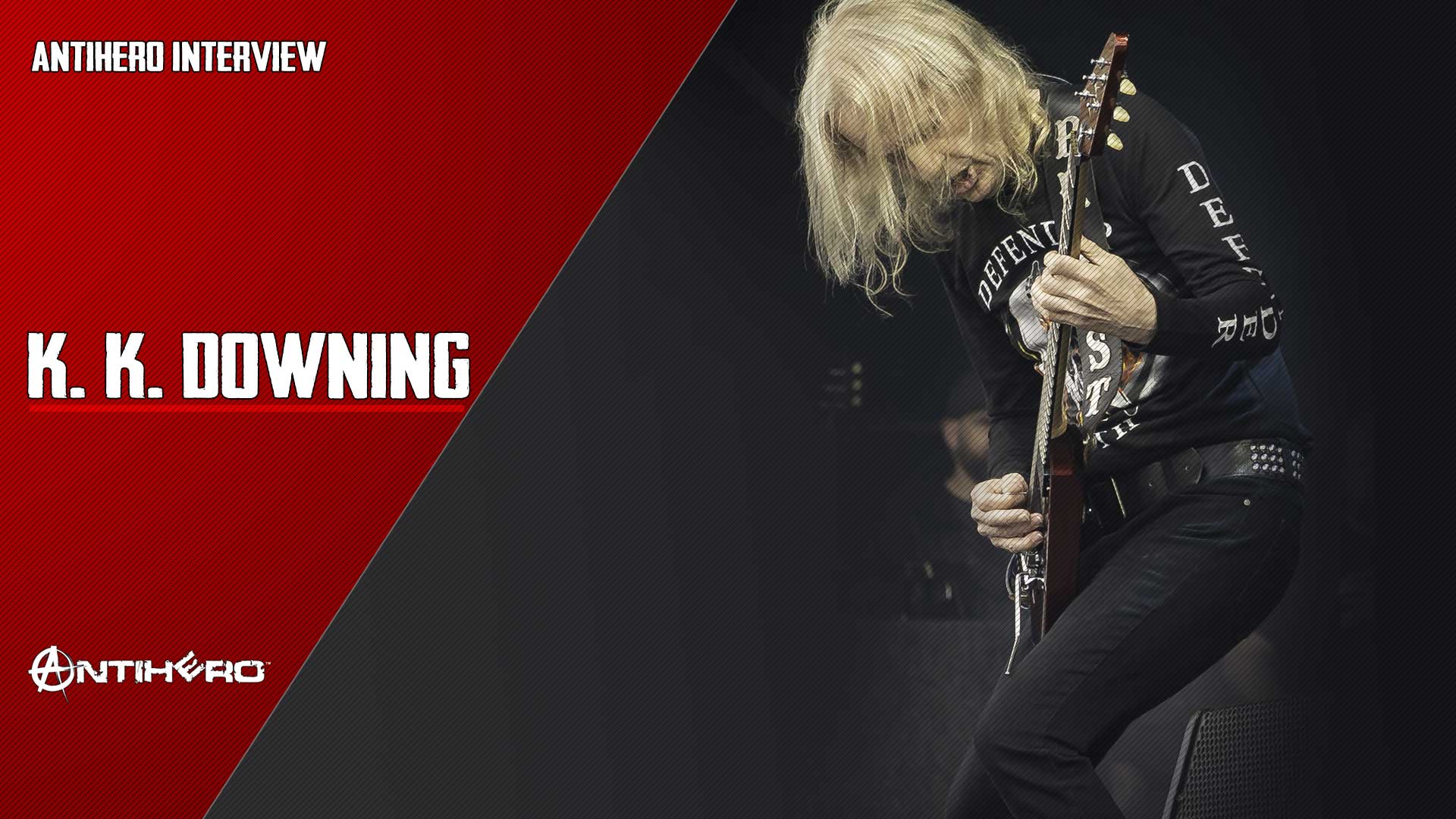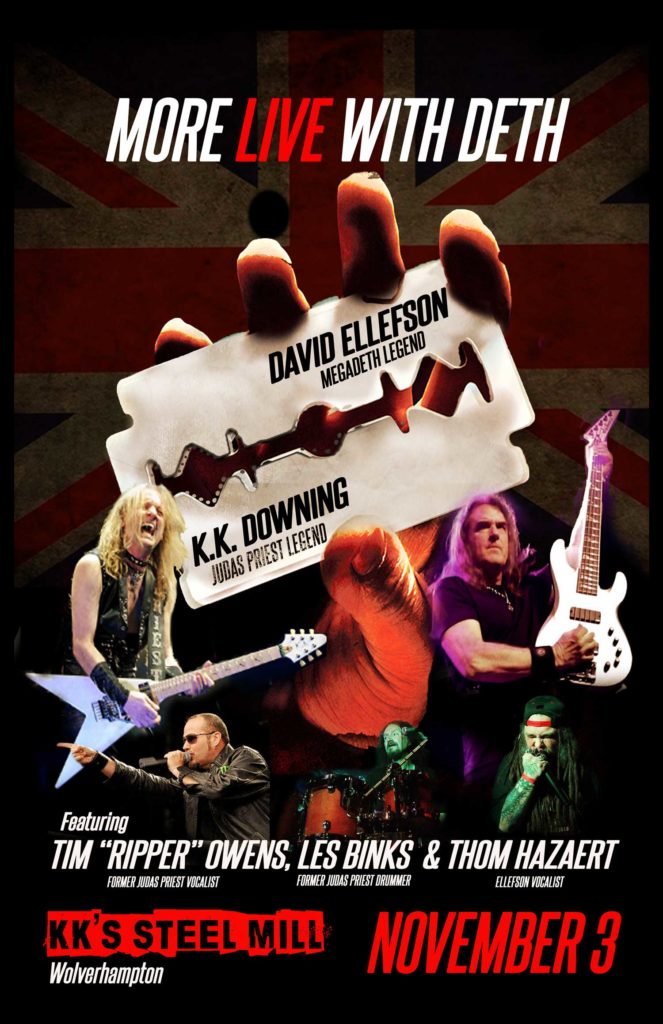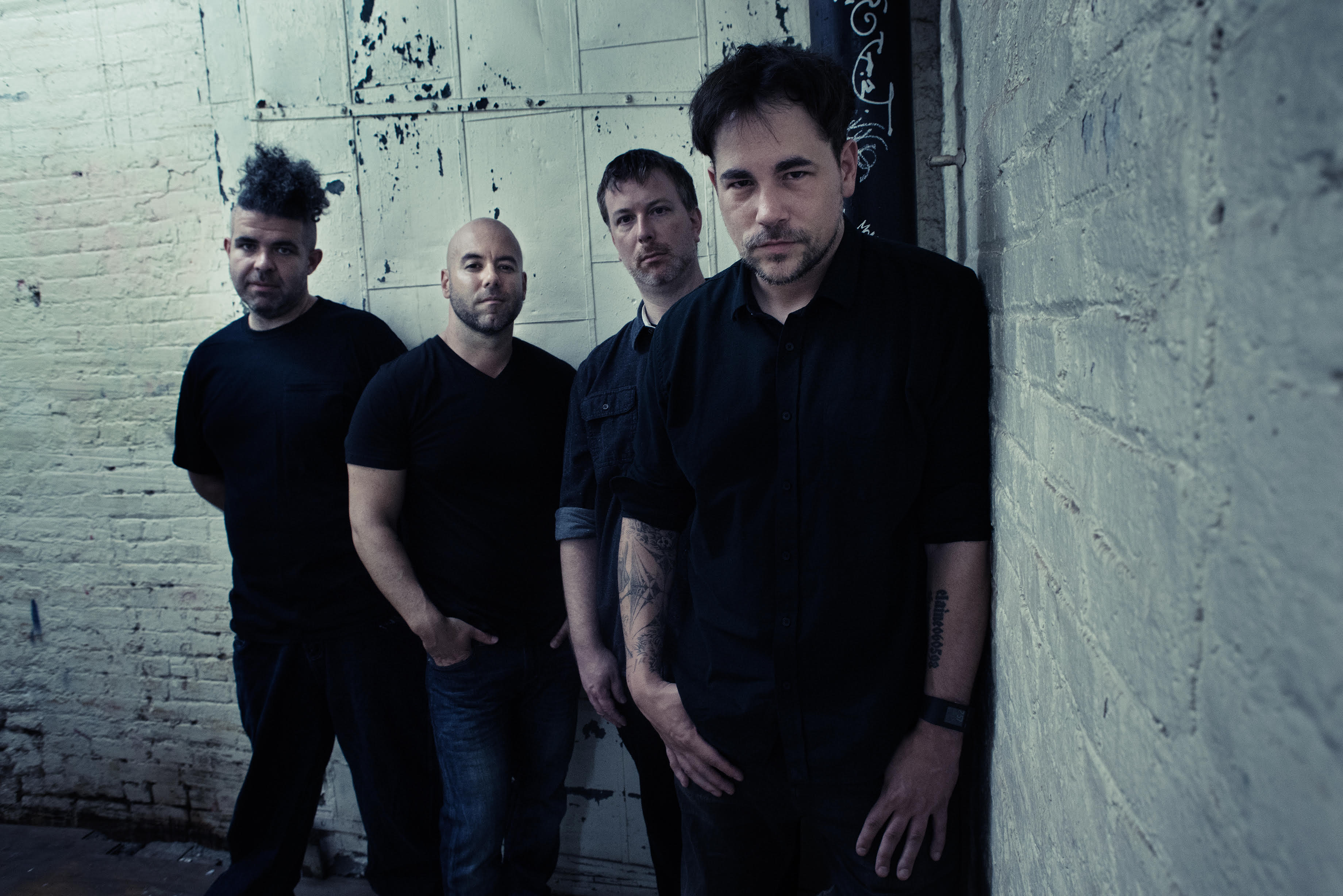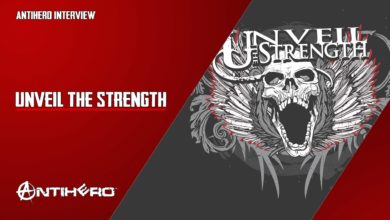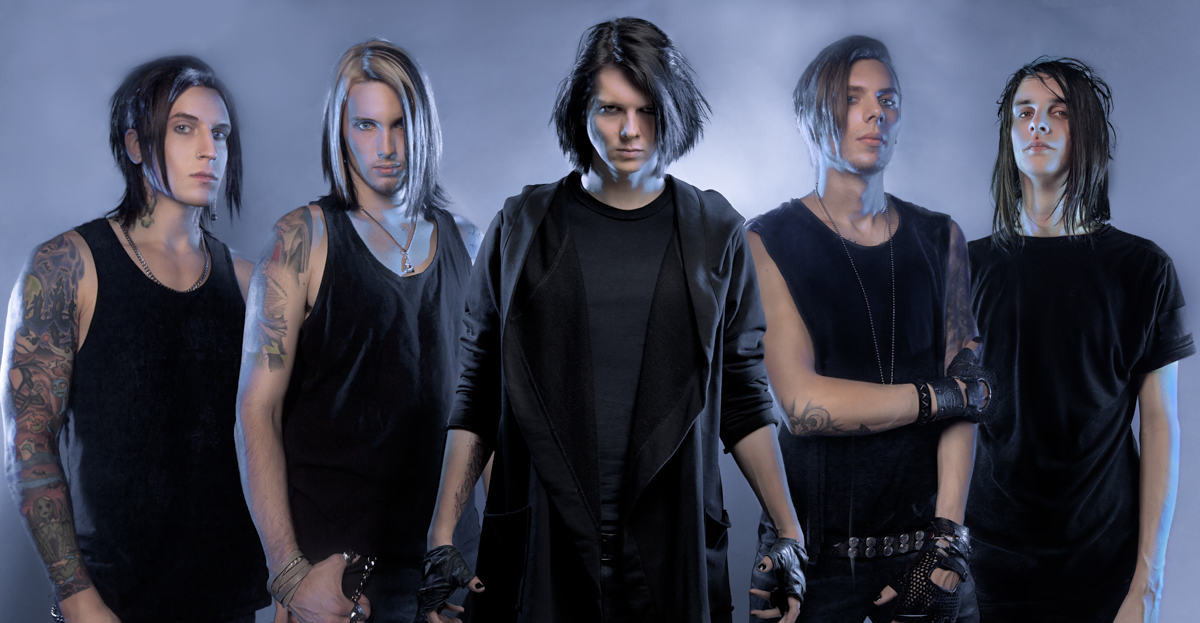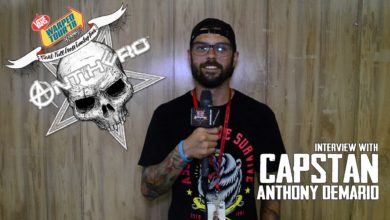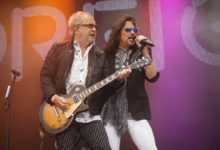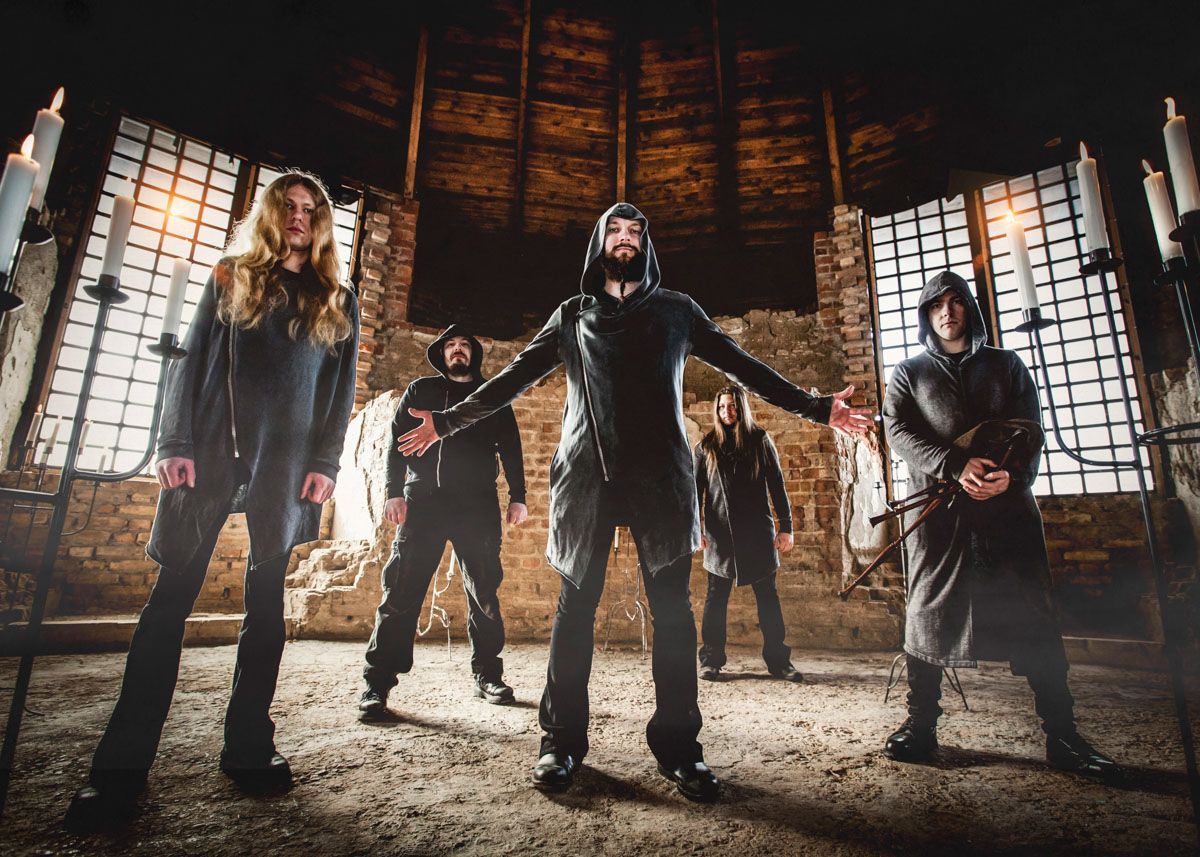Interview with K. K. Downing, former guitarist with Judas Priest
Following previous interviews with Les Binks and Dave Ellefson ahead of the forthcoming special Wolverhampton show in the UK, I chat to the owner of the Steel Mill and former guitarist with heavy metal legends Judas Priest, K. K. Downing.
ANTIHERO: You have a special show coming up at the Steel Mill soon. I’m sure you’re probably fed up being asked the same questions over and over again. So, I just wanted to adopt a different approach, as well as owning the venue, I just wondered what is your direct involvement with the venue on a day to day basis?
K.K. Downing: Oh yeah. I’ve met a guy, well it’s actually a family-owned venue and there are two lads, they’re totally into rock and metal, and now the parents and the rest of the family then transformed the Steel Mill, which was originally – and which closed down in 1938 – a car factory that made motor cars
Lots of motor cars. It was called the Star Motor Company, and it’s been a lot of different things, so the musicians and the families to help us to get this up and running, you know? I thought it was a great idea to give musicians with a lot of potential, you know, to try and give them a leg up.
And somewhere to play and try to showcase them. So we’ve been able to do that. But the venue’s going from strength to strength. Lots of bands have been through. We’ve got enough, Annihilator, Black Star Riders as well as our show. So, we’re doing really, really quite well, because there’s not too much in Wolverhampton and then not really too much in the area, in the Black Country.
We have academies, and a couple of other venues but they should be independent venues, not like, you know a corporate-owned affair, you know.
ANTIHERO: I was just going to say, because there’s a lot of live music venues closing down these days, and I just wondered if it presented a huge challenge to keep it going and functioning effectively. But you’ve already probably answered that.
K.K. Downing: Yeah. Well, I think you it’s exactly that mate. Really it’s not that easy for an independent venue, because you know… Because a lot of named bands and shows, I have, they’re found through agents. An agent, you’ll find, have a relationship with, you know, people like Live Nation and the big conglomerates, you know, which are able to give a band 8 to 10 shows, where independents are not able to offer a band a string of gigs, you know.
That’s why, you’re absolutely right, seems to be, you know, all going kind of the wrong way, but this venue’s doing really well, it’s a big venue, you know, it’s easy 3,500 people general admission, and so I think that this one will grow, and go from strength to strength.
ANTIHERO: Yeah. You mentioned there, big bands like Black Star Riders and Annihilator. Are you also supporting local bands and upcoming bands as well?
K.K. Downing: Absolutely. That’s a big part. We just had… We hosted a Battle of the Bands recently which is a competition really, so we were able to host that you know, in a way that hadn’t been done before, and that’s the Bloodstock organisers that do that because the winners get to go on and to play at Bloodstock, which they did. So, you know, because they were struggling to find someone to host that, you know, because, it’s kind of free of charge and everything, so we were able to do that, but yeah, it’s exactly every time we get a chance, to put unsigned bands… give them a support slot, we’re happy to do that, you know, or even have a night of new talent.
ANTIHERO: Let’s move on to chat about this special show that’s coming up. Obviously, as well as the live show itself with ex-members of Judas Priest, it’s sort of linked in with your book promotion. I just wondered if it was always your intention to write a book when you were in Judas Priest or was that an idea that maybe just came to subsequently when you left the band?
K.K. Downing: No, I had no intention of doing a book. Also, well, you know the years are ticking on, well you know, I just wanted people to… I mean people have heard of me…I just wanted people to get to know me a little bit better, and other things through the book. You know, KK, the person.
And I’ll think that when I came to the realisation that I wasn’t going to be back in Priest, you know, I thought, well I may as well do this, you know, and be open and honest about it.
ANTIHERO: Was it difficult though? I mean you mentioned there about being open and honest, did you not have at the back of your mind all the way through, ‘Oh, I can’t actually go into certain things in exact detail.’ Did you feel not that your hands were tied in reporting certain things, and with that potential for possible legal litigation?
K.K. Downing: Yeah, to be honest, I mean it’s a pretty, you know, spontaneous, honest account. But I would be lying if I said there were things that I have to leave out, that could be something, but maybe, there could be a second book coming. People do ask me, you know, but yeah, it is difficult, because obviously everybody has, you know, personal things, and things that, you know, you’d like to tell people things, you know…
ANTIHERO: I can certainly understand that.
K.K. Downing: So, that’s more to do with things in the upset relationships that you have, you know, but I think the thing is, is it’s still a hell of a lot of content in there that people would find extremely interesting really.
ANTIHERO: Looking back on it now, I mean you’ve been out of the band quite some time. How do you view that exit? I mean, is it tinged with obviously regret and sadness? Has that initial anger maybe subsided a little bit? Because you spent most of your working life in there? I mean…we are talking about some long-standing personal as well as professional relationships that have ended.
K.K. Downing: Yeah, it was the hardest thing I ever did, I ever had to do in my life, you know, because you know, Priest is my creation. Back in the sixties, you know, I was the first member so yes, you know that I think it was trust, you know. And you know, I didn’t have my first old banger of a car until I I was 27 years old, you know, I was catching the bus, you know, and I had albums, you know, in the charts around the world.
That brings a lot of old memories and stuff like that. It was tough. It was hard, but it’s like, you know, lots of things are changing over the world. You know, as you said, lot of music venues are closing down, lots of clubs are closing down and, as time goes on, you know, we’ve seen the music industry itself go through changes, that are not good,
You know the industry’s kind of, you know, almost non-existent anymore. It doesn’t help younger musicians at all. You know, because there’s just no support there for the management, record companies, very, very difficult, but it seemed to me that as the years went on, you know, you’ve reached… we’re getting old, and it’s starting to show in certain ways. I kept saying to the guys, come on guys, you know, the older we get, the younger we have to play. That was my motto, but you know, and because so bands these days they go out there, and rely on back-projection movie screens, to create the energy and stuff like that, you know where I have come from- , I’m old school.
It’s like… when I played Bloodstock, it wasn’t night, it was broad daylight, we had a basic stage, with no special effects-We went out there and played. And if the people didn’t look at us, there wasn’t anything to see. And I liked that
The band then has to perform, you know?
I don’t believe that bands should only play, bands should perform, and I picked that up from when I first saw Jimi Hendrix in 1967. I’m thinking, this guy looks great, sounds great, and performs great, and that’s what I’ll be doing because that’s exactly what I how I do and know.
ANTIHERO: You mentioned Bloodstock there. Did that appearance there, whet your appetite for maybe a more permanent return to music, maybe being involved in creating some more new music, maybe doing some additional live shows to the two that you’ve got lined up?
K.K. Downing: Yeah. Well, I think I’m focused on this now, like a full set, I haven’t done that in 10 years, so I’m completely focused on that. Don’t get me wrong, I could have always done it. It’s just, you know, it’s just, I’ll always be able to do that. I’m very much just looking forward to the intermission a couple of weeks away, and so there’s lots of preparation for that show, and I’m just going to see which way the wheels roll after this performance really, I think.
ANTIHERO: Obviously, it’s been widely reported – I mean you’ve done other interviews in which you’ve described how the lineup that you’re using on these shows came together. I just wondered if you were ever tempted to involve that, shall we say, any of the other Judas Priest members in this particular show?
K.K. Downing: Well no, I don’t think that they have an interest, you know, but it never crossed my mind, and, you know, a couple of them might well be in the audience. Yeah, so they’re very welcome in my office, but I think with Ripper on vocals, with Len on drums and Ellefson on bass which is really good. You know, we’ve known each other for a long time, and I’ve got a great young guitar player, who does look good, sound good and perform good as well. So, he’s my, you know, my gun-slinging sidekick for this performance. So I’m really looking forward to… It will be everything that the Priests should, to be honest. I mean that’s, you know, for me, well of primary importance – because I will be out there doing everything that I ever did with the band.
ANTIHERO: Just a couple then to finish. What would you say in your life you’re most proud of? Would it be that legacy of music?
K.K. Downing: Yeah. I’m proud of achieving the goal, really. I would have to say that I am extremely fortunate. It was tough, you know, and a lot of sacrifices were made. I’d have to consider myself one of the lucky ones, and obviously I’m very indebted to the fans because without them it couldn’t have happened.
ANTIHERO: Just a final one. I’m sure you’ve done many, many interviews, not just promoting this show, but over the years. If the rules were reversed and you could sit down and interview somebody, who would that be?
K.K. Downing: Well, I’ve got no hesitation saying: Jimi Hendrix, if I could. But sadly, obviously, that can’t happen. No, no doubt, you know, the man was simply majestic, you know, to be able to be and do what he did, you know, in the mid-sixties, takes some thinking about really, that somebody could bring that to the table, you know, and be so influential.
ANTIHERO: Okay, K. K. That’s brilliant. Thank you very much for chatting to me. I’m over my time here and I hope to personally attend that show at the Steel Mill myself.
K.K. Downing: Love to see you there mate and everyone else that can make it, like I say there are special, reduced tickets as a thank you to all the supporters for the Steel Mill to get to see the host of the venue playing, you know, so please travel down from wherever you are, we’d love to see you.
ANTIHERO: That’s brilliant. Thank you very much again for talking to me today.

